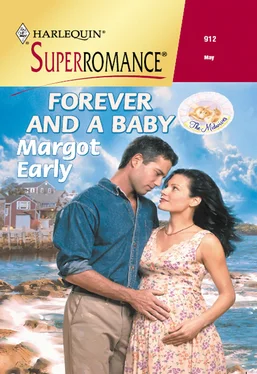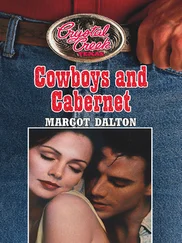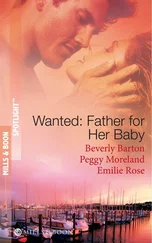He and Dru shared this; her father had also died at sea. But I already knew what Omar told me. My grandfather’s assets were divided equally between his two sons, the absent Mary ignored. Omar sold the boat. My father kept the house. They both went to college. Omar studied finance, philosophy and religion, went into investments. Robert—Bob—became an anthropologist and left for the Sahara, later traveling with his wife and baby, looking always, I think, for the father he’d lost. The father who’d fallen from the sky into the desert and was never seen again. Not the veteran who adopted a Bedouin boy and gave him to his family. I wanted to know about Omar’s other father, the sheikh. More than his name, which had been enough for my father to find some of Omar’s relatives who had survived the war, for Omar to meet them. “You lost two fathers.” The words hollowed the air, like a prophecy.
“Yes.” Omar closed his eyes. “My father.” My only father, his voice said.
I forgave him. Almost. For things of which we’d never spoken. And that I fantasized we would.
“I remember very little. I dug myself into the sand. A tank passed over me.” He shook his head. “The next thing I knew, your grandfather and I were in Tripoli, with the possessions I’d salvaged. He was good to me. And your father was a good brother. Bob asked me things. He wanted to know everything. About the desert.”
The blue brindle, Ehder, brushed my leg. Did he know my scent or remember the border post where no one loved the Tuareg or their puppies? I petted him, dreaming Niger and the last days of my father, Robert Hall. He’d said, I’m dying. It won’t be long. Inshallah. White filled the crevices in his sun-beaten skin. His cataract-ridden eyes, blue, red-lined, had sunk deep. He lay in the hot shade of his tent. He’d rejected the mud walls of the house where he kept his research materials. Sand had begun to blow. Heaping outside. It could bury a tent or a village. He was bleeding from the rectum again. Diarrhea. Vomiting. He wouldn’t leave this place, and he told me he had cancer, had known for seventeen months. I was a sorry parent, he’d said. I’d said, You’re a great man. I love you. He’d said, Does a good son always lie? Is it the job of a child to make the parent great? I recited the Koran to him in the language in which I’d learned it. The men came to talk with him. Magicians came. I had brought morphine, and an American trekker had more. I sat with him five days, reciting the Koran until dehydration won and he lay with his lips gaping and eyes already shut.
I considered the nature of fraud. I had lived among the devout and among the Tuareg—refugees, caravan traders, pastoralists, the descendants of nomadic bandits, a people whose Arab name means “abandoned by God.” My father had chosen them, the traditional enemies of the Bedouin, had finally chosen their independent faith and untouchable spirit. He had fought the painful war for their mountain territory. Omar called himself an atheist. But the rest of my family played hard at their connection to the desert world. The women and their singing and dancing. My father in his pain had said, Inshallah. Allah willing. He had believed that our days are numbered by God, and that nothing can change that plan. He had worn an ancient silver cross, a bowed and beautiful thing. The proof missionaries gave that the Tuareg in their indigo robes had been Christian once. I’d asked Tanelher about it. She’d laughed, and I’d smiled, wishing I were of her tribe, a masked blue man of the desert. Instead of seen and vulnerable—to spirits and the scrutiny of a beautiful woman.
Who are these people, the Tuareg? A photographic negative of the Bedouin? another journalist once asked me. The Tuareg men mask themselves, while the women veil only against the elements. Descent is matrilineal, traditionally. They and the Bedouin have settled on opposite edges of the vast Sahara. But the analogy of a photographic negative fails, limited by its two dimensions. I know because I grew up wandering in the shadow of an anthropologist, and as a man I’ve tried to know—and rescue, in arrogance—the Tuareg and Bedouin and others.
Maybe I, too, seek the father I lost.
“Ben.” Omar leaned closer over the cold wrought-iron tabletop. Perhaps to take my mind off Dad. He blushed again, another blushing smile. “I want you to follow Dru. She’s…indifferent to her safety. And has some unwise notions of where to look for—our man. I want you to protect her. But don’t let her know.”
Dru. I’d forgotten this. Omar’s plan for a baby.
This Tribe
LONG AGO, a New Bedford whaling captain named Haverford left his town and settled on the island of Nantucket, where he married and had children who had children. From Nantucket’s harbor, he sailed his ship, and his descendants sailed their ships. One of these men was Tobias Haverford.
In the winter of 1840, a storm blew Tobias’s ship to the shores of Morocco, where he took on a passenger, a girl named Nudar. He brought her home to Nantucket and married her.
Nudar was a Muslim. That much is known. Her husband allowed her to practice her faith, and she kept many customs of her culture, as well. She passed these traditions to her daughter, who passed them to her daughter, and so on. Her son’s life was the sea. His descendants were Haverfords. His daughters, too, learned the ways of Nudar. In the privacy of their rooms, they sang and danced in a manner alien to Puritan New England. Their tambourines and single-string boxes and ululating zaghareets could be heard on the street. This eccentricity they passed to their daughters as well.
Being Americans, these women became dissatisfied with what was passed down and added to it with the dancing and singing of other cultures. By the year 2000, no one was certain where Nudar had really come from or who her people were.
But these are members of her tribe, by birth or marriage:
My grandmother, Faith Hall, who fell from the stoop, and her husband, Ben Hall, who fell from a plane. Their son, my father, Robert Hall, who died in the desert.
Their adopted son, Omar Hall, who fell. Who fell.
Their daughter, Mary Hall, who embraced the traditions of Nudar and other women who sing and dance in the ways called raqs sharqi, danse du ventre, Middle Eastern dance, Oriental dance. Belly dance.
Mary’s husband, Daniel Mayhew, her brother Omar’s attorney and an Islander.
Their daughter, Keziah Mayhew, a midwife who teaches Nudar’s dances to pregnant women. I always see Keziah not in the ethnic dresses she favors but in a Puritan bonnet and dress, the costume of a pilgrim, because she has the stare of a New England winter. People say our eyes are alike—and came from Nudar.
Keziah has a daughter, and her name is Nudar. She is eleven and blond for a Hall or a Mayhew. Like my grandfather and Dru’s father, Keziah’s man died at sea. Only Keziah knows his story.
There are Haverfords, too.
Wealthy Haverford descendants in California, in publishing. Many cousins. Their own papers carried the story, eight or nine years ago, of the death of heiress Skye Haverford Blade. Skye had married world-renowned marine explorer, David Blade, and borne his child, Christian. She died after falling from the bow of his ship. He remarried, and his wife Jean bore two children at sea. They are of our tribe.
Joanna Oliver left her Charleston home at eighteen and traveled to New York to become an actress. She was discovered, first by Andy Warhol, then, while dancing with the Velvet Underground at the Boston Tea Party, by Nantucket scalloper Turk Haverford. Joanna was the family’s most exotic bride since Nudar, even to her hair that was the color of bleached shells. She thawed even the frozen hearts of the Nantucket Lightship Basket Historical Association. Turk Haverford lost his ship on Georges Bank seventeen years ago. Four men died with him. I imagined the ways a ship can sink, how the keel or bow can rise. It’s possible he fell.
Читать дальше












